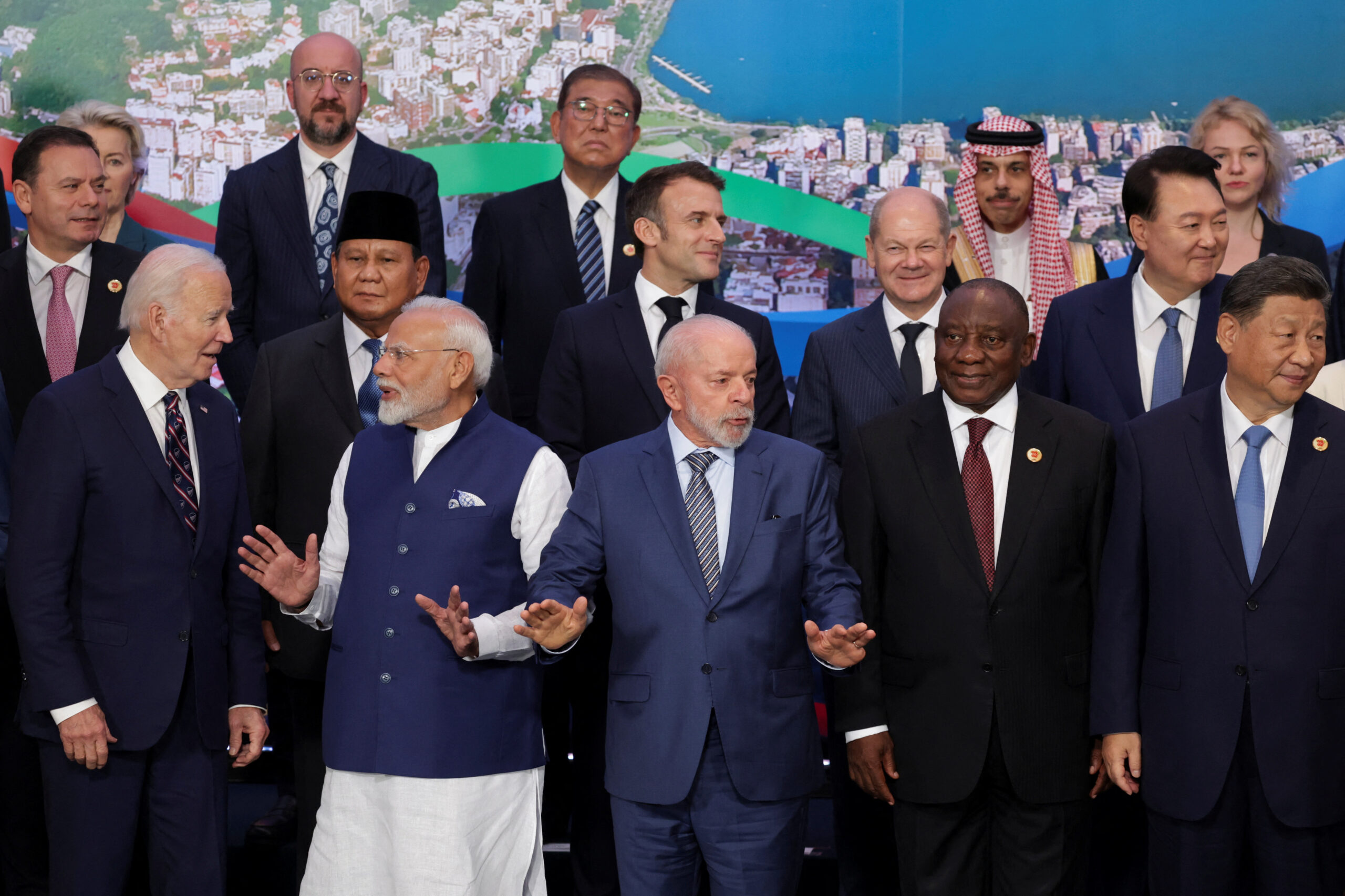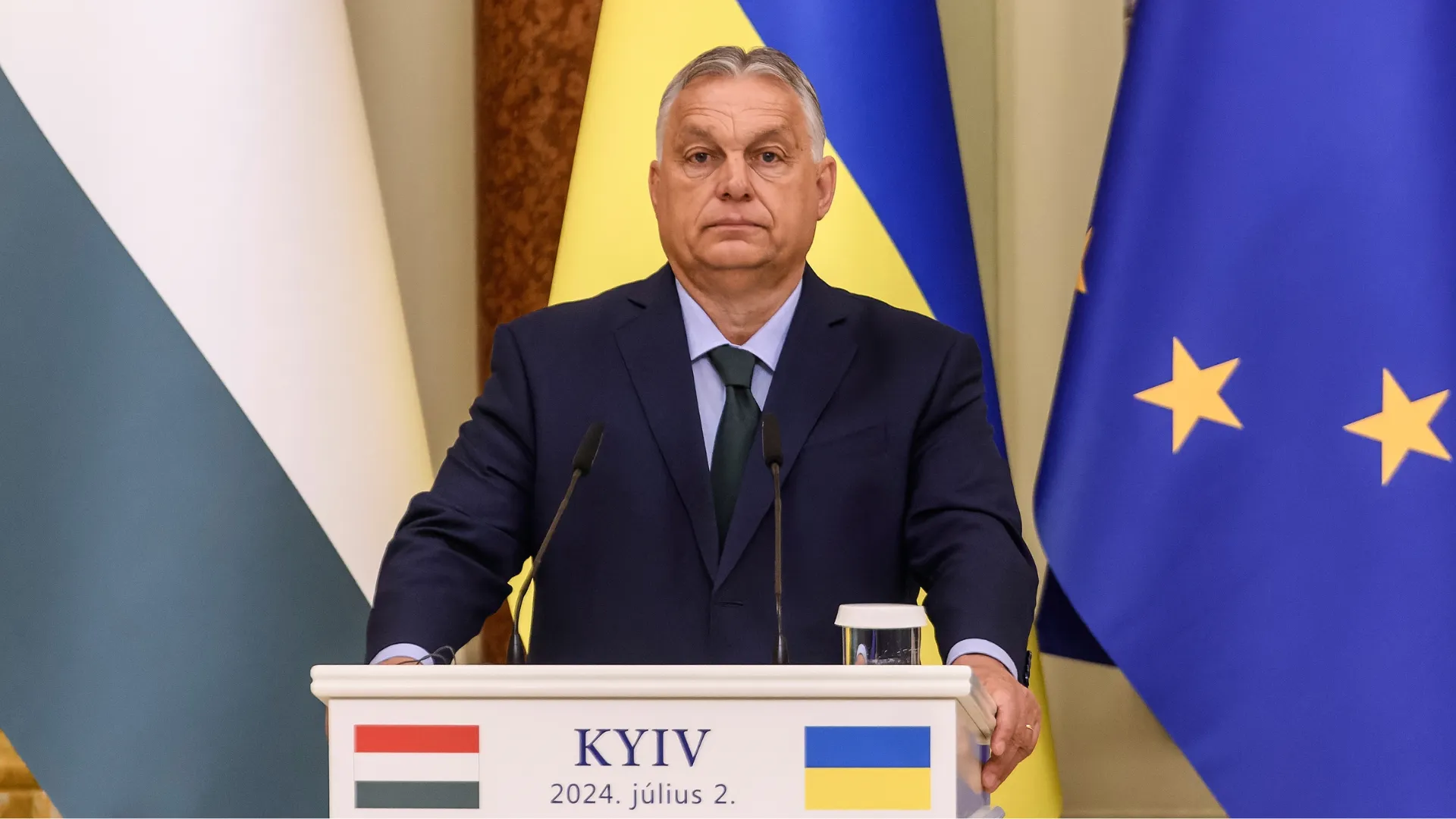Democracy shouldn’t be used as an ideological weapon

Author: Maiko Ichihara, Professor, Graduate School of Law, Hitotsubashi University
Populism is threatening democracy around the world. However, authoritarian domestic actors are not the only danger to this political system: Ironically, discourse emphasizing democracy in international politics has also served to distract attention from its essence.
When Russia’s full-scale invasion of Ukraine began three years ago, Western leaders framed the war in Ukraine as a battle not only in defense of sovereignty, one of the most widely shared norms in international politics, but democracy as well.
Yet this narrative was merely focused on the national defense of a democratic state. It had the paradoxical effect of downplaying the institutions and values that define democracy, replacing them with an ideology centered on conflict between states.
As the prospect of Russia’s invasion loomed, support for democracy in Ukraine rose to unprecedented levels, increasing by 0.3% per day or 9% over 30 days, according to a February 2022 survey by the University of Manchester.
But increased support for democracy in Ukraine was less about backing this system’s values and institutions than about growing pro-European Union sentiment — with opposition to Russia equated with support for democracy.
“Us” vs. “them”
Former U.S. President Joe Biden brought the framework of democracy versus autocracy to the forefront during his 2020 presidential campaign, attacking his opponent, current President Donald Trump, for threatening democracy.
Once in the White House, Biden initially took a step back from employing this dichotomy in his foreign policy because it hindered international cooperation, but Russia’s invasion reshuffled the cards. In a speech in Poland in March 2022, Biden described the war against Ukraine as a “battle between democracy and autocracy, between liberty and repression, between a rules-based order and one governed by brute force,” positing the unity of democratic countries as the utmost priority.
In Washington’s National Security Strategy published a few months later, in October, the term “democracy” appeared 99 times, as noted by Richard Youngs of the Carnegie Endowment for International Peace.
NATO’s Strategic Concept, announced in March 2022, commits to protecting freedom and democracy while describing Russia as “the most significant and direct threat.” The document goes on to portray NATO allies as bound by values of freedom, human rights, democracy and the rule of law, recognizing the challenge that authoritarianism poses to these.
Just a few months later, in September, European Commission President Ursula von der Leyen also framed the war against Ukraine as one between autocracy and democracy in her State of the Union address.
Yet framing the defense of Ukraine as a fight for democracy doesn’t necessarily entail safeguarding democratic institutions and values, such as free and fair elections, transparency and accountability.
Protecting these structures means, for example, supporting the media and nongovernmental organizations, which act as a check on government power. But in the context of Ukraine, defending democracy means protecting the sovereignty of a democratic country, making defense, rather than political reform, the main focus.
That said, conflating democracy with security has created a rally-round-the-flag effect among advanced democracies. The democracy versus autocracy framework used to mobilize support for Ukraine has deepened the divide between democratic countries — “us” — and Russia and its allies — “them.”
Political scientist Lucan Way points out that it was the combination of “moral clarity and existential peril” that proved to be a powerful motivator, spurring European countries into action and igniting a significant shift in policies toward Moscow.
While uniting liberal democracies, this discourse excludes other forms of government, namely illiberal democracies and authoritarian states in the Global South — countries often concerned that aligning with one camp could exacerbate tensions with the other.
Humanitarian failure in Gaza
The conflict in Gaza has brought democratic discourse even further away from its core values and institutions, with the Israeli offensive in the Palestinian territory met with widespread international outrage. If, in the words of Biden’s Secretary of State Antony Blinken, “democracies place the highest value on human life — every human life” when pitting Israel against Hamas, why is Israel, a democracy, permitted to cause immense civilian suffering? The same can be said about Israel’s attack on Iran.
Other democracies, notably the United States, have also been subjected to this criticism. While there has been much scrutiny of how populism is undermining the liberal international order, little attention was focused on the impact of Israel’s government, the most rightwing in its history.
Authoritarian states such as China have exploited anger at the treatment of Palestinians to undermine trust in democracy — a tactic that can be gleaned from the social media posts of Xue Jian, consul general of the Chinese Consulate in Osaka Prefecture.
A close analysis of Xue’s posts from last year reveals a carefully crafted narrative: “Western” countries are using the “facade” of democracy to exercise “power,” the world is “sick of” American-style democracy, American-style democracy is “self-destructing” and China’s is the real democracy, one where the people are the “true” protagonists.
Yet the true democracy that China claims to be does not hold elections or protect civil liberties, human rights and individual freedoms. Even when government policies appear to be in line with public opinion, this does not necessarily mean that the Chinese Communist Party listens to the voice of the people. Rather, it is that only the voices that haven’t been silenced are visible.
Eroding trust in liberal democracy, exacerbated by China’s propaganda, underscores the urgent need to reframe approaches.
Reframing democracy
The trend of using democracy as an ideological battle cry has strong parallels with the Iraq War. The American invasion of Iraq, carried out on the basis of unfounded allegations that the Iraqi regime possessed weapons of mass destruction, was further justified as an effort to promote democracy. This undermined international trust in support for this political system for at least a decade.
A shift in democratic discourse and policy is needed to safeguard freedom and human rights. International conflict should not be pinned on the defense of democracy. Support for Ukraine, for example, should be mobilized by emphasizing sovereignty, a universal norm that also resonates with Global South countries who prioritize noninterference.
Furthermore, words aren’t enough. These must be supported by tangible actions to bolster democratic institutions and values. These include, for example, mutual election monitoring between developed and developing countries, support for government transparency and accountability and protection of journalists and activists who advocate for free societies.
Japan has an opportunity to exercise greater responsibility by taking the lead in preserving the international order and freedom.
(Photo Credit: Reuters/ Aflo)
[Note] This article was posted to the Japan Times on June 26, 2025:
https://www.japantimes.co.jp/commentary/2025/06/26/world/democracy-not-an-ideological-weapon/

Geoeconomic Briefing
Geoeconomic Briefing is a series featuring researchers at the IOG focused on Japan’s challenges in that field. It also provides analyses of the state of the world and trade risks, as well as technological and industrial structures (Editor-in-chief: Dr. Kazuto Suzuki, Director, Institute of Geoeconomics (IOG); Professor, The University of Tokyo).
Author

Maiko Ichihara
Professor, Graduate School of Law, Hitotsubashi University
Disclaimer: The opinions expressed in Geoeconomic Briefing do not necessarily reflect those of the International House of Japan, Asia Pacific Initiative (API), the Institute of Geoeconomics (IOG) or any other organizations to which the author belongs.
-
 Fed-Treasury Coordination as Economic Security Policy2026.02.13
Fed-Treasury Coordination as Economic Security Policy2026.02.13 -
 What Takaichi’s Snap Election Landslide Means for Japan’s Defense and Fiscal Policy2026.02.13
What Takaichi’s Snap Election Landslide Means for Japan’s Defense and Fiscal Policy2026.02.13 -
 Challenges for Japan During the U.S.-China ‘Truce’2026.02.12
Challenges for Japan During the U.S.-China ‘Truce’2026.02.12 -
 India and EU Sign Mother of All Deals2026.02.09
India and EU Sign Mother of All Deals2026.02.09 -
 Orbán in the Public Eye: Anti-Ukraine Argument for Delegitimising Brussels2026.02.04
Orbán in the Public Eye: Anti-Ukraine Argument for Delegitimising Brussels2026.02.04
 Orbán in the Public Eye: Anti-Ukraine Argument for Delegitimising Brussels2026.02.04
Orbán in the Public Eye: Anti-Ukraine Argument for Delegitimising Brussels2026.02.04 Fed-Treasury Coordination as Economic Security Policy2026.02.13
Fed-Treasury Coordination as Economic Security Policy2026.02.13 When Is a Tariff Threat Not a Tariff Threat?2026.01.29
When Is a Tariff Threat Not a Tariff Threat?2026.01.29 Oil, Debt, and Dollars: The Geoeconomics of Venezuela2026.01.07
Oil, Debt, and Dollars: The Geoeconomics of Venezuela2026.01.07 India and EU Sign Mother of All Deals2026.02.09
India and EU Sign Mother of All Deals2026.02.09











